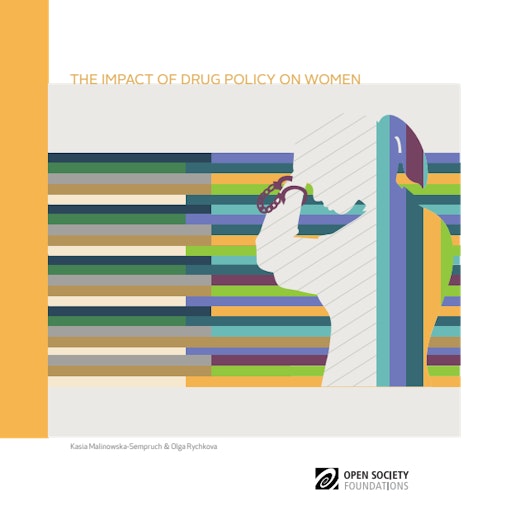As member states of the United Nations take stock of the drug control system, a number of debates have emerged among governments about how to balance international drug laws with human rights, public health, alternatives to incarceration, and experimentation with regulation. This series intends to provide a primer on why governments must not turn a blind eye to pressing human rights and public health impacts of current drug policies.
Across the globe, the failure of the war on drugs has come at an enormous cost to women. Punitive drug laws and policies pose a heavy burden on women and, in turn, on the children for whom women are often the principal caregivers.
Prohibitionist policies impede access to and use of HIV and hepatitis C prevention and care services for everyone, but women and girls virtually always face a higher risk of transmission of these infections. Men suffer from unjust incarceration for minor drug offenses, but in some places women are more likely than men to face harsh sentences for minor infractions. Treatment for drug dependence is of poor quality in many places, but women are at especially high risk of undergoing inappropriate treatment or not receiving any treatment at all. All people who use drugs face stigma and discrimination, but women are often more likely than men to be severely vilified as unfit parents and “fallen” members of society.
In drug policy reform debates and movements happening around the world, the rights of women should be a central concern. Less punitive laws for minor and nonviolent drug infractions are the best single means of reducing incarceration of women and thus incarceration-related abuse. Such measures will also reduce stigma and enable women to have better access to services in the community.
The Impact of Drug Policy on Women elaborates on the gender dimension of drug policy and law, with attention to the burdens that ill-conceived policies and inadequate services place on women and girls.
Download
-
The Impact of Drug Policy on Women (307.16 Kb pdf file)
Download the complete 24-page report. (Updated: September 28, 2016)
-
El Impacto de las Políticas de Drogas en las Mujeres (317.2 Kb pdf file)
Download the complete 24-page report in Spanish.
-
Влияние Наркополитики на Женщин (388.81 Kb pdf file)
Download the complete 24-page report in Russian.
